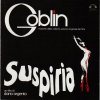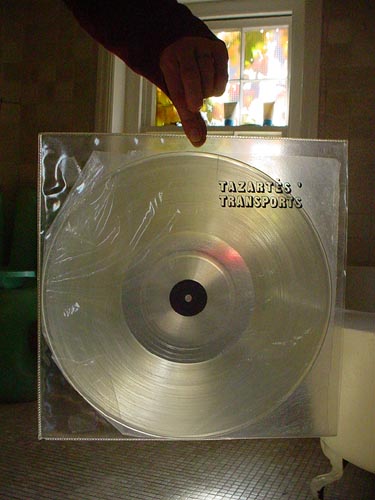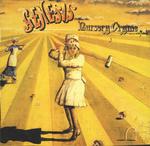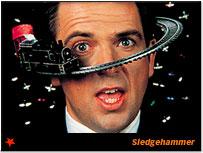October 28, 2003
GIVE ME A SIGN
Hyperdub's Steve tells me that a lengthy interview with none other than Wiley is forthcoming on Hyperdub. The man will be discussing his love of winter and will broach the question of those oriental influences. Can't wait.
I saw Steve at Middlesex's University's Capitalism and Philosophy Lab (organized by the estimable Ray Brassier ). I burbled briefly about Baudrillard's For a Critique of the Political Economy of the Sign , and tried to initiate some discussion on the question of mp3's and sign value. You might remember this being raised here (or at the old site , if you are being pernickety).
Baudrillard's point is that many traditional analyses of capitalism have left what he calls 'sign value' out of account. Marx's analysis, for instance, was based solely on the difference between exchange value (how much a thing costs) and use value (what it does). According to Baudrillard, more important than both of these guages are sign value (the prestige attached to a particular object). It isn't exchange value, still less use value, that determines sign value; just the opposite in fact. Things acquire monetary value on the basis of their prestige, not the other way around.
The mp3 has limited exchange value (as we all know, there are sites where you can pay for mp3s, but these are flying in the face of the general trend towards gratuity). My question was: does it have any sign value?
Baudrillard argues that the level of sign value ascribed to an object has no relation to the intrinsic qualities of that object. Rather, sign value is determined by the object's differential relations to other objects. Baudrillard's example is fashion. If a mini-skirt is deemed 'beautiful', it is not because of any of its own qualities, but simply because of its difference from the maxi-skirt.
So does the mp3 have sign value? My conjecture was that, lacking the allegedly supplementary features of the record or the CD (the cover, even the materiality of the disc itself), reduced to pure functionality, the mp3 lacks those elements in which sign value could be invested.
Steve pointed out that the mp3 is an audio object, and that there is no reason to assume that only visual objects have sign value. Others pointed out that an mp3 collection as a whole could have prestige. In certain online filesharing communities of course, if your collection reaches a certain size, you garner extra privileges (a form of online exchange value).
The relation between sign value and the visual is an interesting one. A record collection can be displayed , and the display itself has an aesthetic quality. Yes, in a certain sense, an mp3 collection can be displayed but such a collection has a non-aestheticizable brute functionality.
With music, as Steve said, prestige is acquired not solely or even primarily by being seen to possess something , but by being seen to have heard it (the journalist or the blogger) and being heard to have heard it (the DJ).
All that said, I still think that there is something different about the mp3. This isn't only about its lack of visual presence; there is also the issue of its lack of tactility (nothing to touch or hold).
___________________________________________
Speaking of 'Give me a sign....', Pop latest:
Britney/ Madonna. I'm with Spizzazzz on this one. It's Madonna who lets down a really rather serviceable single. The video has reached such a velocity of kwick-kutting delirium that it is almost nightmarish. Witness that wood slatted corrdior straight out of Welles' The Trial (the scene with Titorelli the painter). I want this to be a hit. Britney has attained a tragic, pathetic grandeur over the past year or so (which reached its apogee with the painful humiliation of her appearance at the MVA's). Give her a break.
The new Kylie is rather good, too. Be much better if she wasn't singing on it, though.
October 26, 2003
October 22, 2003
ON CONSPIRACY
A presponse to this from Ccru:
To attempt to refute such narratives is to be drawn into a tedious double game. ‘One’ either has to embrace an arbitrary and outrageous cosmic plot (in which everything is being run by the Jews, Masons, Illuminati, CIA, Microsoft, Satan, Ccru…), or alternatively advocate submission to the most mundane construction of quotidian reality, dismissing the hyperstitional chaos that operates beyond the screens (cosmological ‘dark matter’ and ‘dark energy’ - virtual, imperceptible, unknown). This is why atheism is usually so boring.
Both conspiracy and common sense - the ‘normal reality’ script - depend on the dialectical side of the double game, on reflective twins, belief and disbelief, because disbelief is merely the negative complement of belief: cancellation of the provocation, disintensification, neutralization of stimulus - providing a metabolic yawn-break in the double-game.
October 21, 2003
IT SHOULD BE IN YOUR MIND
It just gets better and better, really it does.
Philip continues his astonishing run of form...
LOAFISHNESS

Sean with one of my favourite lines of recent times:
I love life. I just don't like my own.
Crumbling Loaf really should be a sitcom: one of those typical British inertiacoms, the blocked engine of which is the fact that the lead character has just enough vision to be discontented with his lot, but not enough drive to achieve escape velocity. (And the gender designation is no accident here: it's always a he, isn't it, whether it be Tony Hancock, Steptoe, Shelley...) The sad revelation, kept just out of their conscious awareness but constantly informing it, is that their life - that fetid swamp of statis - is the way it is because, in some sense, they want it like that, it's their desire that calls the tune, that returns them to a square one they profess to loathe.
The name 'Crumbling Loaf' is packed with the pathos and bathos that Sean has combined into his signature mode. It's loaded with semantic freight: 'loaf' meaning both 'brain' (in the colloquial - 'Use Your loaf') and lethargic ('to loaf' around). The crumbling loaf in the breadbin - sandpaper-dry and flecked with mould - as a metonymic symbol of the single life (it's always impossible to eat fresh bread before it goes off when you live on your own). 'Crumbling' evokes the gradual, barely perceptible but nonetheless unavoidable sense of decline and disintegration that afflicts us thirtysomething males every time we cower away from the mirror. The Crumbling Loaf generation as the new version of Slacker?
TIME FOR A CHANGE

I've promised a reply to Simon's Sixties thing for a while, so here goes...
No doubt the Sixties 'itself' was a fabulously variegated decade, full of surprise, wonder and novelty. This doesn't seem to me to be the issue; the question is whether it should be allowed to maintain its status as a temporal anchor, the mythical ur-point to which all subsequent cultural developments must be traced back. I just don't find this narrative useful, illuminating or productive; even if, in some sense, it is 'true'. For me, partly for perversity's sake, partly because it generates new perspectives, I prefer to see the Sixties not as a Golden Age, but as a precursor to the seventies and eighties. No doubt this is a matter of aesthetic preference: I just find, for example, For Your Pleasure and Unknown Pleasures, (is there a theme here - maybe Numan's Pleasure Principle is the third in this triptych?) superior to anything from the Sixties. The fourteen year old in me, with his video and electronics-saturated disdain for the cobwebby, monochrome-old newsreel Sixties is still something I can't get past. I'll now grant that Sixties music is of historical interest, but it'll never affect me in the same way that seventies and eighties stuff does. As I said in the early days of k-punk, it's as if Delia Derbyshire had rendered the whole of the Sixties out of date in advance.
Simon's other point --- that early seventies Prog can be placed within the Sixties, since the Sixties (as a cultural epoch) lasted until at least 73 --- is well-made, but couldn't we also make a case for a micro-period lasting from 69 to 75? 69 - even the digits of the year are so much more darkly exciting than anything else in the Sixties....
Simon's positing of Glam as the great break seems to me much more fecund than kindling the Sixties flame. I find the idea of Glam as a rejection of the Sixties far more compelling than seeing it as its continuation. Naturally, rejection implies some dialectical relation to the previous decade/ episteme/ structure of feeling/ whatever. But that doesn't mean that Glam could be reduced to an antagonism for the Sixties. Roxy, for example, strike me as absolutely, irreducibly Seventies, even if they - unavoidably - have some biographical connections to the Sixties.
_______________________________________
Incidentally, since we're on Delia and all that, one of the many fascinating things to emerge from BBC 4's documentary on the BBC Radiophonic Workshop was the idea that its terminal decline was precipitated by the arrival of the synthesizer. The Moog made the Workshop's bespoke sound-construction (sounds generated from found sources; tapes painstakingly spliced and looped) seem redundant. At the same time, the Moog was unreliable and functionally-limited, provoking sniffy disdainer from the RW. Nevertheless, it was unavoidable, and apparently produced despair in the members of the workshop.
Fascinating to be reminded how familiar sounds can be rendered electro-alien simply by pitch shifting (achieved by the Workshop's running at the tape at different speeds). And nice to hear the origin of the John Craven's Newsround jingle....
No doubt James and Michael will correct me if I've made factual errors about the RSW. :-) Absolutely no sarcasm intended, I hasten to add. I've learned tons from their contributions to the Comments boxes!
_________________________________________
Another thing ... Hearing the compact Suspiria album (it's all over in about 37 mintues) made me think that it's not the Prog era but now in which excess and indulgence comes as standard. Oh, for a 37 minute album now....
October 19, 2003
THIS SPAM IS GETTING OUT OF HAND
Dear
I recently visited your website k-punk.blogspot.com/ and I like it very much.
I would very much appreciate a link from your web site to one of my
projects, an adult dvd/video shop.
To make this attractive for you I can offer two links from two different websites, one non erotic and one erotic site.
Both of these web sites have a lot of visitors and good rankings in the
search engines.
Please let me know if you are interested so we can work out the details.
Sincerely,
Laura
October 18, 2003
TIME TO SHATTER SOME MYTHS
Could things get any more crass?
Ages ago - in internet time; in real time about three months - I was moaning about TV and films' tendency to lazily appropriate Pop as a period signifier. Tonight I accidentally stumbled across BBC2's Big Read (yet another one of those TV charts; this time of the British public's favourite books) which exemplified a related syndrome: here songs were yoked to books whose theme or title they shared. Needless to say, the BBC left no stone turned: nothing was included unless it was completely, totally Obvious. For example:
The Great Gatsby --------------- Bowie's 'Young Americans'
Great Expectations -------------- Billy Joel, 'Uptown Girl'
1984 ------------------------------ Oakenfold's 'Big Brother theme'
Harry Potter and the Goblet of Fire ---- Guess what? Arthur Brown, 'Fire'
See what I mean? It was so Chris Morris, it's untrue...
But, just as you're looking forward to hearing Kate Bush's Wuthering Heights, guess what they play? Marilyn Manson's 'The Beautiful People.'
The cross-linking of book to song produced a mutual delibinization in just about every case. Each song was structurally put in the position of bathetically deflating the book, familiarising it through e-z, unthreatening reference.
Stop it!
At this point I propose to leave the dark and dismal subject
of the traumatic neurosis and pass on to examine the method
of working employed by the mental apparatus in one of its
earliest normal activities‹I mean in children's play. - Beyond the Pleasure Principle .

I've got one of those ! Got it for my birthday! (Thanks, Rob!)
I want a Jung figure for it to beat up...
ALL ANIMALS HAVE PERSONALITIES

Hey, this blogging lark can have its perks.
Arrived home from work yesterday to find two CDs on my doormat: Goblin's Suspiria from Jim and Transports by Tazartes from Matt . Both outstanding...

The Tazartes' LP is a Lynchesque dream record, a delirial wash of backwards speech, muslim prayer wail, church bells, drones, primitive drum machines and proto-synth. You're reminded, fleetingly, of Stockhausen's Hymnen, Neubauten, early Cabaret Voltaire, Mark Stewart circa As the Veneer, even Funkadelic's Maggot Brain. Transports ought to be fragmentary and dissipated, a haphazard juxtafest of incongruous elements, but it's just the opposite. It has a compelling consistency lacking in the dessicated, academic noodling of so much of today's Wire-type experimentalism. You want to keep listening, and when it finishes, you press 'play' again.
Transports is at the darker pole of uneasy listening, queasy listening, which is genuinely ambient in that it brings into play the sounds of the listening environment. It's like a dream in that transient sounds becomes incorporated into the experience.
Matt thought I'd like it, and I do.
In its mood, the Goblin record is not so far from Transports. It's everything one hoped Prog could be, but, in my limited exposure to it, seldom is. Goblin have what most Prog I've heard doesn't: a depth-plumbing bottom end, a bass that coils and rears like a giant cobra. (Incidentally, what much Prog has in common with Regressive Rock is a disdain for, or indifference towards, rhythm.) Suspiria isn't some steroid-bloated inflation of rock, a prolongation of rock by other means. The instrumentation and the mixing don't reflect rock's trad priorities. Yes, there are guitars, but not as lead instruments. In fact there aren't really lead instruments of any kind here. Woozy kettle drums, rasping semi-audible whispers, trance-inducing percussion, multi-tracked chants, swooping moogs: the first side is a masterpiece of sustained threat, mustering all the tension that Prog typically throws away in its ostentatious determination to showcase virtuosity.
Thanks, chaps.
BACK BY POPULAR DEMAND
... with possibly the best post ever on one of the best blogs around, It's All in Your Mind's Philip , whom I thought might have taken to squatting in k-punk's comments boxes. He's more than welcome, of course: but it's great to see him back on his unhome turf.
NO FUTUREBLEED: KNEALE'S HAUNTOLOGY

The Kneale Tapes , BBC Four
(Thanx to Michael for the heads up).
The most haunting moments in BBC Four's retromentary on Nigel Kneale were reconstructions of his lost television play The Road.
Like many of Kneale's fictions, The Road was a new twist on the ghost story. All ghost stories are about time travel. In the standard version, of course, they are about the past invading the present; or about the present being captured by the past. The Road cunningly reversed this. Set in 1771, it was about spectres of/ from the future, reverberations from an event yet to occur. The sirens and panicked screams and car noises that disturb the villagers of the eighteenth century were the sounds of people fleeing that which can never be escaped: their own destiny, planetary ground zero, year zero, total nuclear annihilation.
The Road , like much of the BBC's output in those days, was not preserved. There's something awfully poignant about the thought of a ghost story about the future being lost to that very future, like one of the burned films in Auster's Book of Illusions. TV then, everything performed live, flared with the intensity of the modernist moment , attended to in rapt fixation by an audience not yet multi-channel splintered, hanging onto every syllable of a this self-erasing text, because not yet lulled into indifference by the prospect of endless reruns (dramas were not repeated, then, they were restaged, like theatre). No now in Postmodern time; the videocassette, that which is preserved in advance, that which can be watched at any time (and so is never watched) doesn't record television, it transforms it.
Fatality, the lure of total quiescence, the human appetite for (auto)destruction; even before Ballard, Kneale brought Freud to bear on SF. No, not the superego-ego-id (Spock-Kirk-Bones) triad of Star Trek's cuddly psychodrama ; Kneale's Freud was the dark magus of Beyond the Pleasure Principle , the pitiless explorer of the death drive's intensive hydraulics. It's in Beyond the Pleasure Principle that Freud reminds us that, in trauma, time breaks down. No time at all in the unconscious, with its terrible compulsions to repeat, its circuitous journey back to where - and when - it had never left.
What we most want is not to be, never to have been.
What we most are is alien.
Perhaps the most arresting pages in Marcus' Lipstick Traces are devoted to Hammer's version of Kneale's Quatermass and the Pit. As you read Marcus retelling Kneale's masterpiece, you wonder what all this has to do with what Lipstick Traces is supposed to be talking about, whilst knowing, really, that nothing could be more relevant to punk than Kneale's pyschogeologic horror story. Kneale's revelation - that human beings are the by-product of an alien breeding experiment, that deep within us is a Martian, burning with the desire to indiscriminately destroy - others, yes but ultimately, itself - is the uncomfortable punk gnosis.
Kneale's presentiments can be sold as moral warnings, flag-waving for Eros against Thanatos - witness Bernard Quatermass' grim vision of earth becoming 'the Martians' second dead planet', if we do not learn to rein in the Martian within us. Yet Kneale has already deconstructed the opposition between Eros and Thanatos, human and Martian: unravel the human, unravel Eros, and you discover that both are only folds within the body of anorganic Thanatos.
Kneale's SF, like Ballard's disaster novels of the early 60s, is compelled to endlessly rehearse apocalypse, to re-imagine civilization in meltdown. Don't be fooled: the moral messages are what libido (=Thanatos) needs in order to simultaneously mask and show itself. If you are continually repeating something, it's because you want it. Like the rest of us, Kneale can't help desiring London's devastation.
The Quatermass serials of the Fifties and Sixties were too early for me; I've only seen the Hammer film versions. The 1979 return (on ITV) with John Mills was my Quatermass, its images of England in anomie, civil society disintegrating, New Age travellers following leylines leading to their own annihilation (Bomb Culture, oh yes) are now mixed in my mind with those on the covers of the darkheart postpunk LPs. Quatermass brought the implied world of Killing Joke, Cabaret Voltaire and Tubeway Army - apocalypse-graffiti walls, bombed-out buildings, barricaded streets - to unlife.
Unfortunately, I fell asleep during what looked like the excellent Stone Tapes .
I don't suppose it's being repeated is it, Michael?
October 17, 2003
DUTCH CAN DO
 Tim's comments below (on the United Response post) comparing football to music remind me of something Simon wrote ages ago where he made an analogy between Can and the Total Football of the Dutch team. What a fabulously suggestive parallel; I've never been able to think of Can and that classic Dutch side in quite the same way since. The elegant, almost telepathic interplay, the non-organic fluency and fluidity, the rhizomichaos of the group mind.... You see, you don't know whether I'm talking about Can or the Dutch, do you?
Tim's comments below (on the United Response post) comparing football to music remind me of something Simon wrote ages ago where he made an analogy between Can and the Total Football of the Dutch team. What a fabulously suggestive parallel; I've never been able to think of Can and that classic Dutch side in quite the same way since. The elegant, almost telepathic interplay, the non-organic fluency and fluidity, the rhizomichaos of the group mind.... You see, you don't know whether I'm talking about Can or the Dutch, do you?
BORGES FOR BREAKFAST
Most of the action on k-punk is being generated in the comments boxes at the moment, and, naturally, I enjoy that.
It's funny how the most offhand remarks generate the most feedback. Witness the British Sea Power post (12 comments) and the United Response post (12 comments and counting).
The United Response post presents me (and anyone else who wants to play) with a diabolic temptation: scurry down the rabbit hole of speculation about who would win, Man U or England, and you're in danger of never returning. I suppose it's partly the impossibility of these never-to-be realised scenarios that draws us to worry on at them. I can imagine M------o tutting censoriously about silly laddish obsessing, and half of me agrees, yet our capacity to indulge in these pointless derrives and divertissements, to invest trivia with weight and significance, is what is most charming about the male of the species. It's a genuine existential triumph, almost heroic. On either side of this pleasant, seemingly harmless leisure pursuit lurk two dangers: absurdity and atrocity. The first is personified by Alan Partridge, earnestly debating who would win in a fight between Sean Connery's Bond and Roger Moore's; the second by a Fundamentalist dogmatism, a passional commitment to die and/ or kill in the name of these phantom commitments, these how many-angels-can-dance-on-the-head-of-a-pin conjectures.
I suppose the appeal of Nick Hornby - though it's not an appeal I have ever succumbed to - is that he cheerily sets up camp betweent these two extremes: obsessive and fixated, but self-aware enough to avoid either bathos or fascism.
I have more of a weakness for Danny Baker , whose breakfast shows on BBC Radio London (which my crappy little clock radio can pick up) are delightfully and genuinely anarchic: unscripted, unplanned, interrupted only by the station's de rigeur News and Weather slots (which, like the nagging awareness in a dream that you will awake, are irritating emissaries from the Real World which you must soon re-enter), the show is held together by the charismatic sorcery and joyful force of Baker's cracker-barrel personality. Baker is the Borges of breakfast, a connoisseur and inventor of unlikely taxonomies: famous Doctors, celebrity teeth, the greatest ad slogans ever , fictional characters who wear three-quarter length trousers, the strange routines of other families (tiny details which suddenly reveal that Other People's Houses are really Other Worlds), Baker lures you into fixating on these categories that you couldn't even have dreamt of. His mind tirelessly pursues these non-topics, which have nothing in common with each other apart from the fact that they are all 'objectively' of no possible importance.
The carnival king of a world turned upside down, Baker, thankfully, makes you forget what's really important. He is genuinely Surrealist in a way that the actual Surrealists - too po-faced and programmatic - seldom were, serious about the silly. It's the seriousness that Nietzsche recommended: the seriousness of the child at play. What you're suddenly aware of, when you're cast out of Baker's wonderland, is the insufferable adult weight of the rest of the culture, with its neurotic faux-sophistication and prurience. There's not a trace of irony, not a shred of meta-self consciousness, in Baker's curatorial craziness. This is radio as a Situationist derrive, wandering without premeditated purpose through London's unconscious. The only guiding thread through this funhouse London labyrinth is Baker's enthusiasm.
Enthusiasm, enthusiasm: enthusiasm is obsession gone liquid, its calcified, one-eyed fixity transformed into a foaming, teeming froth.
Exactly what you need in a morning.
October 16, 2003
STASIS HOUSE
I hate the word 'Thursday' now.
Because if I see it at the top of the Pillbox I know there have been no updates.
Like Miss Havisham's stopped clock, that 'Thursday' means Time has frozen at the Pillbox.
Seeing that 'Thursday' is like arriving at an old friend's house and finding entrance barred by a locked wrought-iron gate. All we know is that they have gone ---- but where to? And will they ever return?
UNITED RESPONSE
Responses from Tim on Freaky Trigger's sport l thread and Scott to my Kapital-United piece.
Have to disagree with Tim about one thing, though: I reckon England would cream Man U. That's partly what's so amusing about Kurt's position: its lofty assumptions about United's status have more to do with their shareprice than their current achievements on the pitch. United are getting no closer to winning the Champions League; the idea that they would win the World Cup is ridiculous.
October 15, 2003
IF IT AIN'T GUTTERBROKEN...
Couple of cracking posts from Nik Gutterbreakz on Suicide and Hall and Oates. Sometimes 'really not understanding' can be just the right idea ...
October 14, 2003
HELL'S ANSWER TO THE HISTORY CHANNEL: NOW WITH PICTURES
Mr Craner's new one, cittaviolenta , as deliriously compelling as ever: 'Hell's Answer to the History Channel', CNN for the unconscious....
October 13, 2003
SELLING ENGLISHNESS FOR THE DOLLAR (SLIGHT RETURN)
 |

|

|
It's back - thanks to perfect angel, Mr Michael Carr. Sadly the comments are unrecoverable.
Well, we agree on one thing. Gabriel's 'Sledgehammer' was the end of something. But of what, precisely?
In an interesting post on House at World's End , Robin Carmody develops Simon's argument, pointing out that " 'Sledgehammer' and 'Invisible Touch' were consecutive US No1's around the time of Andrew and Fergie's wedding." By then, Robin avers, it became evident that High Tory Englishness was no protection against US capitalism.
Mention of 'Invisible Touch' can't help but bring to mind Patrick Bateman in American Psycho. In perhaps the most hilarious scene in the movie, Bateman - US consumer-capitalism personified - perfectly ventriloquizes the Eighties' revisionist take on Genesis' career:
'I've been a big Genesis fan ever since the release of their 1980 album, Duke. Before that, I really didn't understand any of their work. Too artsy, too intellectual. It was on Duke where, uh, Phil Collins' presence became more apparent. I think Invisible Touch was the group's undisputed masterpiece. It's an epic meditation on intangibility. At the same time, it deepens and enriches the meaning of the preceding three albums... Listen to the brilliant ensemble playing of Banks, Collins and Rutherford. You can practically hear every nuance of every instrument. ... The peak of professionalism. ... Take the lyrics to Land of Confusion. In this song, Phil Collins addresses the problems of abusive political authority. In Too Deep is the most moving pop song of the 1980s, about monogamy and commitment. The song is extremely uplifting. Their lyrics are as positive and affirmative as, uh, anything I've heard in rock. ... Phil Collins' solo career seems to be more commercial and therefore more satisfying, in a narrower way. Especially songs like In the Air Tonight and, uh, Against All Odds. ... But I also think Phil Collins works best within the confines of the group, than as a solo artist, and I stress the word artist. This is Sussudio, a great, great song, a personal favorite.'
(But, like Gabriel's 'Melt' album, [the one which includes 'Games Without Frontiers' etc.], wasn't 'In the Air Tonight' Collins' take on Neuwave?)
Certainly, what fascinates about the early Genesis is the quaint Olde Worlde Englishness of their record covers. Take the Nursery Cryme sleeve (see above), with its sinister Lewis Caroll croquet lawn and suggestion of a Faery-tale Albion of pantomime-gone-bad Punch and Judy menace. I'm not sure I've heard this one, to be honest, but the Gabriel-era Genesis I have heard falls disappointingly short of the English Can-plus-Spirit of Eden-plus Edward Lear plus medieval carnival perverse pastoral epic I idly imagined. Gabriel's vision and voice - then that quasi-hysterical anglo-quaver - were the saving graces but really the band are so poor, so lacking in imagination and deftness, that the end result is not the nobly deluded, elephantine absurdity one always associates with Prog, but a plodding, workmanlike competence. Like most Prog I've heard, Genesis' problem is not self-indulgent excess; it's dullness. Listening to the two Gabriel Genesis tapes I have (borrowed long ago from my Prog correspondent, Bruce), what strikes me about their music is its lack of nuance. It is either Quiet or Loud - no middle ground, no eddying flow or ebbing undercurrents, just a stuttering study in jerky contrast. Isn't that jabbing masculine jerkiness, that anti-plateau jumpiness, what is so much of a turn-off about Prog? Genesis' sound was English by default - still Blues/ r and r-based, it was English only in the sense that it was a specifically English take on American forms, not in the sense that it evoked England.
What I've heard of Gabriel's solo stuff is much more intriguingly English than Genesis. I've always found 'Solsbury Hill', for instance, movingly evocative of the rural English experience: the sharpness of clear air, that hollow, mossy feeling of earth beneath the feet, the town lights scattered below. In any case, if Gabriel-era Genesis were a failed attempt to produce a convincingly English rock sound, Collins-era Genesis and post-'Sledgehammer' Gabriel were an achieved attempt at simulating - and indeed outdoing - US AOR. Robin is right; by then, there is not a trace of English public school resistance to American hegemony. They are part of the programme.
But what is it that 'Sledgehammer' ends? I'll come back to that.
MEA CULPA
Accidentally deleted the Genesis/ Gabriel post, along with the comments. How stupid was that? Apologies to everyone who took the trouble to make a comment.
CORPORATE-EU-LENT
A number of our recent discussion topics coalesced in a quite astonishing piece today in the Observer on the Man U vs England stand-off.
Remember that discussion a while back between k-punk and blissblog on territoriality and capital, when Simon was positioning Grime's ultra-locality as a kind of dirty protest against the clean sheen of a deracinated Global Kapital? Remember what - following Robin Carmody - I was saying yesterday about Eighties AOR signalling that a certain version/ vision of Englishness had capitulated to the $?
Well, here is one Richard Kurt, deputy editor of the Red Issue magazine: 'The fundamental thing is that Manchester United see themselves as an international, multinational club, not a provincial city club. We are a globally visioned brand. We're not about England, but about the world. Nationality doesn't matter.'
Until recently, the FA was as hierarchically class-stratified as the House of Lords - I think I'm right in saying that members of the Admirality used to sit on important committees as a matter of course. The confrontation this week between the FA and United, with the England players caught, somewhat ingloriously, in between, was a face-off between a multinational plc and a national institution, with the national institution cast in the role of stick-in-the-mud resisters to ‘Modernization.’
Alex Ferguson occupies an ambivalent position here. This week, he found himself, for once, aligned with the board and the plc. Yet Ferguson- whose style is routinely contrasted not only with that of the coolly analytic Eriksson, but also with that of the similarly phlegmatic Arsene Wegner - is famously the last bastion of an 'archaic' British version of management, in which the club is run not as the jewel-in-the-crown of a corporate folio, but as a personal fiefdom. The professorial, professional-class Wenger and Eriksson - softly spoken, polite, PR-sensitive - are well-heeled representatives of the European bourgeoisie. The irascible Ferguson, meanwhile, prides himself on his upstart status as a former Clydeside shop steward made good. The point is to make it without becoming one of Them.
In that respect, one of the many striking things about Kurt's comments is their strange disconnection from the national make-up of the United team. Unlike that of chief rivals, Arsenal, the backbone of the United squad is predominantly English. The hapless Ferdinand, the Neville brothers, Scholes, Butt; it's the likes of Van Nistelrooy and Solksjaer who are the exceptions in a squad that has, for the most part, been put together in the old-fashioned way, through careful husbandry of homegrown talent. Van Nistelrooy is one of the few foreign big names Ferguson has bought in and retained. Ferguson's experiment with the slowburn Latin sorcery of 'little witch' Juan Sebastian Veron was prematurely terminated, reinforcing United's essential Englishness. Scholes, Butt, their very names are redolent of the prosaic, pragmatic anglo-proletarianism Ferguson favours. The resolutely unglamorous Phil Neville - who looks like he should be cringing about in an Alan Bennett play rather than representing a 'globally-visioned brand' - is perhaps the most authentic face of Ferguson's United.
Ferguson's sale of Beckham, after all, was something of a thumbing of the nose at the 'globally visioned brand' cultivated by the plc. Beckham was the only United player - the only footballer - with genuinely global appeal; exactly the kind of asset a global brand would want to hold onto. Beckham - whose background is of course as working class as they come - had nevertheless become associated with an aspirational cosmopolitan classlessness subtly at odds with Ferguson's vision of success as class revenge. Be successful, but don't forget who you are, and don't let them forget who you are.
In effect, then, there are three forces in tension here, in a plot of Shakespearian intrigue: Ferguson's United, which far from being impersonally cosmopolitan, is made in the manager's image, a 'Family', as another Observer report had it; the United plc, whose interests, as Ferguson is well aware, are only contingently coincident with his own; and the FA.
Little of this emerges in Kurt's picture, which elides Ferguson's United with the plc. One would expect a corporate lackey to spout the kind of bland brandspeak Kurt happily spools out on behalf of the board. It's quite another thing to hear a fan toe the party line , chillingly and appallingly reminiscent of those sad call centre employees interviewed by the aghast Darcus Howe a year or so back in his memorable documentary, who unquestioningly subordinated themselves to the sinister smiling corporate ethos of the Egg online bank.
Kurt's comments have very little relevance to the United team, but everything to do with how a certain type of United fan sees themselves. 'At Leicester two weeks ago there were six or seven songs - particularly Are You England in Disguise? - and the Leicester fans reacted strongly. Leicester is an England-supporting city and that's the sort of people - flag-of-St-George-waving, Little England, Sun- reading people - that we want to wind up. We'd sing them at West Ham, Leeds, Newcastle, places like that. It is political, but it's also sophisticated. I'm quite proud of it.' The fit between a left-liberal social agenda, anti-nationalism and pro-capitalism is, it would seem, complete. Locality - Leicester! - is equated with a territoriality that is unreflective, 'unsophisticated' and fascistic . (Leicester is in fact is an ethnically-diverse city, home to much Desi beats). The alleged sophistication of Kurt's United fan is, in his account, a consequence of their informed consumption. Leicester fans support Leicester - dullards that they are - just because they were born there. But United fans have selected United in the same way that a discriminating palate might settle upon a vintage wine, their choice reflecting an exercise of informed judgement rather than an instinctual atavism. On the one hand, we are led to believe, we have the stubbornly archaic, pre-capitalistic territoralities of the local community team and the meta-local National team; on the other hand, the brave new world of the ethnically-diverse, Champions-League-pursuing, Kapital Eutopia, in which national rivalry is a thing of the past.
Incidentally, I wonder where Mr Kurt comes from?
Too easy to equate locality and localism with fascism, and internationalism with 'sophistication.' As Simon's analysis of Grime has shown, such a simple binary can hardly be adequate.
The seedier side of Kapital has come out in the other big football story this week. Whatever the truth of this particular story, it's clear that many footballers are now, literally, Kapital's Id running wild, a kind of personification of its won’t-take-no-for-answer voraciousness. The combination of fabulous wealth, alcohol and male hormones have produced a lawless libidinal monstrosity, a breed of young man as casually convinced of their immunity from prosecution as were medieval princes. Forget Kurt's corporate brochure: that scene in the hotel bedroom is the grim reality of contemporary Kapital, a heady brew of seduction, desire and brutality. If it wants you, it’s got you. No matter what.
October 11, 2003
GLOOMCORE FOR NEXT BLOGGERS' NITE OUT?
Well, I say a hearty yes to both offers.
Anyone else for the gloomcore? Not Luka's scene I suppose, but Ingram, this must be one for you? And Kilroy, what do you say?
CLEANLINESS IS NEXT TO DEATHLINESS
'I have come to the conclusion, after a long period of arduous research, that other people, that is, everyone other than me, must spend most of their domestic time clearing up and cleaning their houses. Either that, or they cleared up once and then they never did anything.' - Crumbling Loaf (permalinx screwed, so can't link directly to the post; scroll down, it's the September 11th entry).
Yes!
It struck me that one of the most subversive things about Fight Club was that it showed: a dirty house. Something one almost never sees on TV: no matter how supposedly 'gritty' the drama, everyone's house is not only sparklingly clean, it is also disturbingly tidy. Lack of cleanliness is so socially unacceptable it's not even representable .
SHOOT THAT POISON ARROW THROUGH MY ART

I've been wanting to respond to this post of Geeta's for a while now. Geeta is calling for a full-blown New Pop revival, and decries the arid 'artiness' of much microhouse.
While, naturally, I concur with Geeta's drift, I'd quibble a little, perhaps pedantically, with her terms. I'd say that what bedevils Pop now is its lack of artiness. There's a surfeit of tastefulness in certain genres, for sure, but I wonder if that isn't something they share with New Pop.
Perhaps this illustrates k-punk's deviation from the gospel according to Popism. New Pop may have been the moment where Pop ceased to wear its Art on its sleeve. At a certain point, New Pop and Neuromance could appear all but indistinguishable. Too crass and simplistic to say that New Pop repudiated Artiness, but its play with the refurbished signifiers of 'simple Pop pleasure' militated against Art Pop's complications , which it sublimated or, better, superlimated into the illusion of pure surface.
Nothing illustrates this more than the group which partly prompted Geeta's musings, ABC. Despite being a fan at the time - ABC were the first band I saw live - I find them almost unlistenable now. Like most of Horn's productions - monumentally 'impressive' to exactly the same degree that they are uninvolving (and for exactly the same reasons) - ABC leave me cold. ABC are not Art Pop, but Designer Pop - something that could be said of most of Horn's work, actually . Fry's fastidious connoisseurship fitted naturally with Horn's affectless, dispassionate sound construction. The Lexicon of Love was a meta-classic album in that it eschewed the modish and the modernist in favour of the 'timeless': an album that, although it was composed of nothing but simulations of the past, was utterly disengaged from history.
The obvious contrast is with Japan, the last of the Art Popsters. Unlike ABC, Japan were modernists. No attempt to (re)capitulate (to) some notion of the Pop classic. They pushed on - Sons of Pioneers - dissatisfied with anything that wasn't novel. I've bemoaned Sylvian's subsequent lapse into Taste before. What kept Taste at bay in Japan was the spectre of Glam, which was still something to be negotiated with, even at the end. Glam is anti-Taste incarnate, a vulgar sublime refusal of beauty's proportion as much as it is a rejection of the everyday's drabness. Glam's dressing-up was never an aspiration to attain Classic Style. On the contrary, in fact, it was always an unsettling of perfect form, a trash apotheosis. (In that respect Eno, the fly in the ointment, might have been more Glam than Ferry, who was always prone to conspicuous displays of Taste.)
October 09, 2003
IDOL THOUGHTS
> They're fucking rough, those Pop Idol contestants aren't they? - Sean (whose mordant comic genius is now starting to get the props it deserves).
Not as rough as Kate Thornton though.
A PRESSURE COOKER
Chilling parable here from the Lukmeister. A coldly autumnal anecdote, brought to life by Luke's unfailing ability to make banality (of evil) crackle with poetry.
And they say the blogosphere's dead.
BEYOND A JOKE
Now it's fackin Frampton .
Everything I know about him - which is very little - I gleaned from the Simpsons.
Thanks for the link, though, Nick.
October 08, 2003
COULD THIS BE THE BIGGEST UNDERSTATEMENT OF ALL TIME?
Bear in mind that there's loads of indulgent wank in these records.
Still, better indulgent wank than British Sea Power.
Better anything than British Sea Power.
Actually, wasn't it the anaemic, resolutely non-indulgent tedium of 'regressive rock' (Reynolds) that led to the partial rehabilitation of Prog. On the grounds that like, it might have been bad, but nothing can be as bad as this.
OK I'LL BITE
Even though Scott has said it all.
Homegrown music is more exciting than at any time since Britpop. That exciting, eh?
Three words: British Sea Power.
Yep. That exciting.
SPACE, TIME, LIGHT, ALL THE ESSENTIALS

J. G. Ballard season , BBC Four
Like his admirer Jean Baudrillard, Ballard has for a long time resembled a rogue AI, repermutating the same few themes ad infinitum, occasionally adding a sprinkling of contemporary detail to freshen up a limited repertoire of fixations. Fixations, fixations. Appropriate, since, after all, Ballard's obsession is .... obsession.
In the BBC Four Profile - nothing new here, the old man gamely and tirelessly going over his favourite riffs, once again - Ballard repeated one of his familiar, but still powerfully sobering observations. People often comment on how extreme his early life was, Ballard said. Yet, far from being extreme, that early life - beset by hunger, fear, war and the constant threat of death - is the default condition for most human beings on the planet, now and in every previous century. It is the comfortable life of the Western Suburbanite which is in every way the planetary exception.
Thus Home , BBC Four's brilliant adaptation of Ballard's short story The Enormous Space . Home is the kind of thing the BBC used to excel at: drama that was genuinely, unsettlingly weird without being insufferably, unwatchably experimental. Not that Home has much hope of appealing to popular taste stuck away on BBC Four, of course. A sign of the times.
Home revealed itself to be a perverse cousin of the suburban drop-out situation comedy, The Good Life or The Fall and Rise of Reginald Perrin spliced with Polanski's Repulsion. (No surprise to see director Richard Curton-Smith namechecking Polanksi as an influence). Anthony Sher was superbly, charmingly unhinged as Gerald Ballantyne, an accident victim who, instead of returning to work after his convalescence, decides to embark upon an experiment. 'Decides' is no doubt too active a word; in every respect the typical Ballard character, Gerry discovers rather than initiates, finds himself drawn into a logic he is compelled to investigate. (In many ways a faithful Freudian, Ballard has no doubt that obsession always has/ is a logic.)
The experiment, it turns out, has a simple premise. Gerry will stay indoors, indefinitely, living off the supplies of his well-stocked larder and freezer until... until what? Well, that is what the experiment will establish. Can he survive by 'using his front door as a weapon'? What unfolds is the descent into the maelstrom Ballard has explored since High Rise and Concrete Island , a quest to the outer edges of the human that follows a well-defined sequence, whose stages can be readily enumerated:
A letting go of the old identity . This is given up easily. Ballard's twist on the disaster novel as far back as The Drowned World lay in the readiness of his characters to embrace rather than resist the new conditions which catastrophe had visited upon them. Ever since High Rise , Ballard has seen characters going one-step further, actually initiating disaster as a revolt, not so much against conformity, as against air-conditioned comfort. Here, Gerry burns all his correspondence, his photographs, then his birth-certificate and - in the most sacreligious act of all, which made mortified my Protestant soul - his money.
The loosening of the hold of civilization [Bataille phase] Ballard is endlessly rewriting Civilization and its Discontents , and his fictions are attempts to imagine a libidinal utopia in which the pay-off between survival and repression spelled out by Freud's mordant pessimism is somehow circumvented. The return to savagery, even the experiencing of raw hunger pangs, are eagerly savoured opportunities to relax civilization's impulse control and neutralizing of affect. In Home, when Gerry's conventional food supplies are running low, he turns first to the flowers in his garden and then to his neighbours' pets. The scene in which Gerry's neighbour questions him - in that middle class ever-so slightly insinuating way - about the disappearance of his dog 'Mr Fred' and his wife's cat is a masterpiece of grisly comedy. 'Perhaps they've eloped,' Sher gibbers, by then constantly on the edge of all-but illegible hysteria. Laughter, a strange, snorting, sniffling chortle that he can barely contain: it is that laughter which signals, more than anything else, that Gerald has left polite society, never to return.
The exploration of the transcendental beyond [Kant/Blake phase] I mean transcendental in its strict Kantian sense, of course. Ballard likes to refer to this as his exploration of inner space, but I have always found this to be a profoundly misleading description. Much more than astronauts floating in empirical space, it is the 'Outer' which Ballard's suburban cosmonauts investigate: what they confront is time and space themselves, as preconditions of all perceptions and experiences, and what their explorations open up is an intensive zone beyond - outside - standard perceptual thresholds . Hence Home becomes an aberrant version of The Incredible Shrinking Man . Cut off from the world beyond his door - I refuse to call it the outside world - Gerry's sense of space massively expands. 'The rooms are getting bigger.' The attic becomes an antarctic 'white world' of blank, freezerburning vastness, the irruption of the transcendental outside into the empirical interior of the house, now a very cosmos, teeming with texture and previously unsuspected detail. 'I feel like an explorer, or an astronaut.'
Curton-Smith's use of the video-diary format gave the film a queasy intimacy and a suitably unheimlich relation to Pop TV Now, something underscored by Gerry's sign-off remarks about undertaking the 'ultimate home makeover.' Yes, that's one way to make the most of your space.
The man whose head expanded. 'Are you on drugs, Gerald?'
And self-denial, starving, the withdrawal from company, it's all very topical. I wonder - I hope - something Gerald-like is going on in David Blaine's head right now.
October 07, 2003
PR[BL]OG
Meme with his version of the Progblog pantheon:
K-Punk: King Crimson (mucho erudition around a solid rhythmic base. But any more Dr fucking Who and you're The Enid, got it?)
The Enid it is then... :-)
Kodwo Eshun = Yes fan
Worse than that, he likes Roger Dean ...
Uh-oh, so does someone else .
October 05, 2003
LUV2LUVTUFLUV
k-punk joins the chorus of approval for the truly excellent tufluv . Wish he/she'd break up her paragraphs a bit, though.
What's I Feel Love in the Progblog stakes? Rush? Any suggestions, Angus?
And A Time For Fear?
PROG, MOI?

I reckon the blog phenomenon is now entering its own early 1970s.
If that means we're out of the Sixties, great!
Speaking of the early 70s, great oldstyle (in every good way) Wire piece on Miles' Jack Johnson Sessions in the current issue, for those who ain't seen it. (And Ian's round up of the Japan re-issues. But when is Ian going to re-appear?)
Funnily enough, I spent a while on Limewire in the summer trying to track down VDGG and Hammill stuff. I liked what I heard, but didn't know where to begin really. (And Limewire is shit). Anyone got any suggestions about what is the best place to start?
I DON'T KNOW WHETHER TO LAUGH OR CRY
no, I have the pallor of the Lower Middle Class, the self defeating approach to life, the belief it stops here with job with lifelessness. I don't know why they have an illness called Depression. That's just being Lower Middle Class isn't it? The intelligence but not the confidence to express it, the rising anger that rarely erupts. From Sean's blog, Crumbling Loaf . Crumbling Loaf has made an art of too close-to-the-bone, painfully funny, funnily painful posts. Nothing much happens, over and over again, forever. The real secret life of a generation of Sad not Lad males, dissolutely unable to focus on any clear goals, but unable to relinquish the ghost of ambition, the desire to do something - but what? - else. I must go on, I can't go on, you know the drill. The tantalizing feeling of waiting for a train that left years ago, of waiting interminably when you know you should have arrived long ago.
Crumbling Loaf is like the interior monologues of the characters in Peep Show , (sample from Friday's episode, : [Mark wandering around the supermarket] 'Life is full of pain, desolation, why do we pretend otherwise? [Spots a tin on special offer] Ooooh, look, 33% off...)' The lurching between a total existential void and the comforting lure of trivia - Crumbling Loaf renders that horribly familiar experience all-too vividly.
October 04, 2003
I NEED A RADIO
It's a bit mad living in the environs of London without a decent radio. I'm getting increasingly frustrated being turned onto all this stuff (a) you can only hear on the pirates or (b) for eight quid a throw or (c) on mp3. (Having a Mac means downloading ain't as easily as it could be, too, btw). Especially keen to hear Simon's 'orientalist darkcore bliss' and all this colder-than-cold grime silver dollar circle is chatting about.
Bought Deuce online on Simon's reccomendation - super-quick and efficient service, payment via paypal, arrives before you can say Jack Robinson - but, at least as far as the free CD goes, it seems like it was the wrong issue (as Simon admitted). I'm with Simon and Luka on this: Southside garage (Plasticman et al) doesn't cut it for me. There's something 2D and demo-like about it. It's an anti-plateau: instead of not wanting it to stop, you're forever waiting for it to start. It idles , like the engine of a car stuck in a traffic tailback. Croydon Techno , with all of the impersonality of Techno, but none of its sheen or gleam: concrete-grey, asphalt dull, subway anonymous.
October 02, 2003
JUST IN CASE THERE'S ANYONE OUT THERE WHO HASN'T
Somewhat superfluous to recommend going to TWANBOC this week. Because you've been already been there, seen the movie, got the T-shirt. Right?
October 01, 2003
OMNISEXUALITY
Jess really excels himself here, in his evocation/ evisceration of two videos we've also skewered at k-punk, though much less eloquently. Check his description of Beyonce as a 'Jim Rose Circus sideshow freak with detachable joints, a writhing horror of multiple motors and gears all operating independently of each other for full booty impact. She may have an ass like a horse, but here she looks like a bunch of sewn together doll parts, like Sally from The Nightmare Before Christmas.' And on Christina: 'Xtina herself seems to find new wasy every tme she appears on TV these days to somehow not be naked and yet be wearing next to nothing and YET instead of just wearing like underwear of a bikini she finds the most outlandish ways to straddle (pun sadly intended I'm afraid) the line between dressed and naked (cf. the Daisy-Dukes-with-no-sides here.)' Could he be more right?
This connects, in my mind at least, with some remarks of Angus': 'as Zizek says apropos "The Talented Mr Ripley" in a recent LRB piece, a character with no sexuality is actually a lot harder for contemporary audiences to assimilate than one with a perverse but legible sexuality.' In our new Fifties, omnisexuality is drably de rigeur, hypernormalizing....
CHRONIVOROUS
Well, since Doctor Who posts are clearly the k-punk equivalent of the Sun putting Kylie's arse on the cover... 21 comments on REGENERATION TIME AGAIN (and counting)....
I propose a k-punk parlour game to run alongside the one started on I Feel Love. We've started thinking there about lines in the sand which the new version SHOULD NOT cross i.e. no love interest for the doctor, no TARDIS redesign, no floating Daleks (!!)
I propose thinking here about things which the new version SHOULD include. My first suggestion is that the focus should be on time rather than space. And by time, I don't just mean historical stories, though I'd like to see more of those, or, worse, stories about the future (never convincing somehow: the most insuperable problem is fashion). No: I mean stories which foreground the Zenonian paradoxes implicit in the possibility of Time travel (there are Zenonian paradoxes implicit in the 'ordinary' conception of time, for that matter). There was, so far as I remember, and I'm sure that someone will correct me if I'm wrong (please do!) a disappointing paucity of Doctor Who stories which involved time paradoxes or anomalies. City of Death from the Douglas Adams era strikes me as one of the best stories on this theme. An alien split into twelve personae (each stranded in a different era) mounts a cross-temporal plot involving art forgery (six copies of the Mona Lisa).

There was 'The Time Monster' from the Pertwee era - regarded by many as risible, but which I think of as a delightfully psychedelic curio. Atlantis! The Master! Ingrid Pitt! And a monster called a chronovore (what a neologism). How could anything involving all those elements be entirely bad? Still, it did little with the chronovore concept, and the time theme wasn't really explored far beyond a few scenes of hapless UNIT soldiers being temporally frozen.
